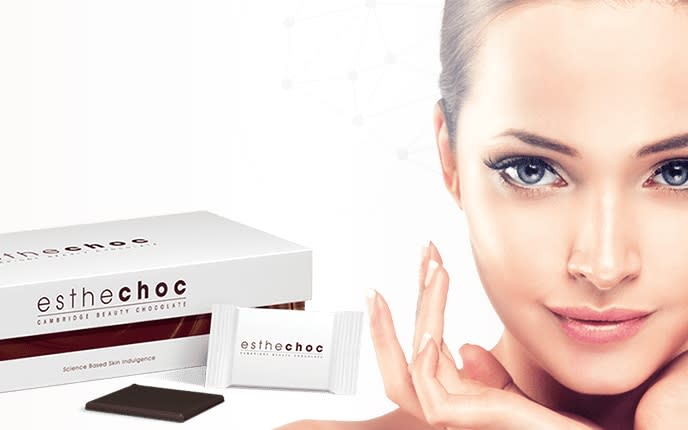Advert claiming chocolate bar reverses aging banned by watchdog

An advert claiming a chocolate bar slowed the ageing process and helped people heal from plastic surgery has been banned by the watchdog.
The Advertising Standards Agency (ASA) ruled that claims made about ‘esthechoc’ bars, made by a Cambridge-based company, were not backed up by credible science.
The watchdog received two complaints about statements on websites owned by Cambridge Chocolate Technologies Ltd, which said the bars were “enriched with powerful extracts derived from algae”.
As such, the company claimed bars contained a high level of antioxidants and had a “proven effect” on circulation and skin metabolism that produced a range of health benefits.
One claim on the website read: “One small esthechoc a day helps to regain your skin health and slow down the ageing process”.
Further down on the site, the company said that by “reducing free radicals and increasing tissue oxygenation” its confectionery also “promotes optimal recovery from any intervention in plastic surgery”.
Readers were told that eating the bars would visibly reduce skin reddening and swelling after procedures.
Following the complaints, Cambridge Chocolate Technologies Ltd produced a study showing the general health benefits of the two main ingredients in the bars, astaxanthin and epicatechins, and another showing that their product contained higher levels of both elements than a competitor.
However, the ASA ruled that the evidence provided by the company to back up the claims did not meet the required regulatory standards. The watchdog said the tests carried out by the company only compared its own bar to one other competitor rather than a range, as required by EU standards.
The surgery recovery claims also fell foul of rules banning companies from marketing food or drink as preventing, treating or curing human diseases.
The ASA ruled that the claims could not appear again and that any future claims about the benefit of the bars had to be linked to approved research.

 Yahoo News
Yahoo News 
